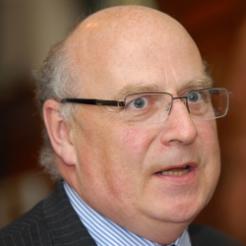Chief executive of NCVO Sir Stuart Etherington has said that most charities only decide to merge when there is no other alternative because trustees don't want to confront the fact their charity is in trouble
He also said that charity chief executives "go out of their way to prevent mergers".
Sir Stuart was speaking at the NCVO Trustee Conference this week, where he responded to a question from the audience on whether the Charity Commission hindered mergers.
He said it had never been his experience that the regulator was a problem; “in fact they go out of their way to assist merger activity”, he said.
Instead, he laid the blame with charities for stumbling over mergers. Often they only go ahead when there was no other alternative, he said, as trustees don't want to admit their charity is in trouble:
“Then this is not a merger,” he said, “but a takeover by an organisation which is much stronger. It is rare for organisations of a similar strength to combine.
“Usually it is one basket case before you get a new merger.”
Sir Stuart added that it is common that chief executives "go out of their way to prevent mergers".
He also said organisations dependent on public money were driving the merger debate.
Younger: Merging is not a panacea
Sam Younger, chief executive of the Charity Commission, who also spoke at the debate, said the Charity Commission should not force mergers, and noted that merging wasn’t a 'panacea':
“If it is on an unequal basis you can have problems and more costs. If done well it is positive.
“We do routinely ask charities when they register whether they’ve looked at if there is another similar organisation to them already so they can decide whether a new charity is needed or if they should pool with others on the register.”









